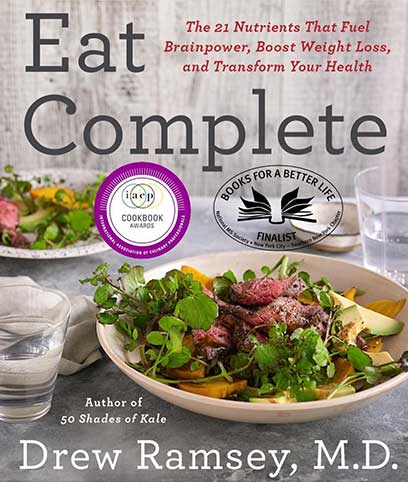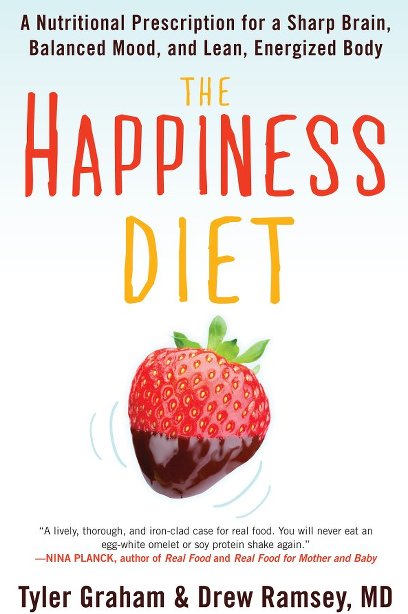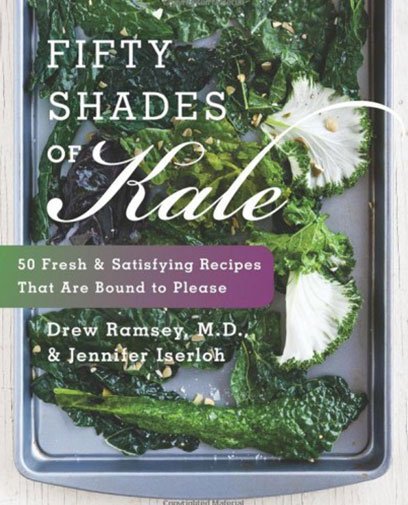How do food choices contribute to Attention Deficient/Hyperactivity Disorder (ADHD)?
I had a great time again with the crew of Live from the Couch on WLNY CBS TV this morning discussing this. I wanted to post some of the references for those interested and to recap the information.
Several studies over the past indicate that eating more processed foods increased the risk of attention and behavioral problems. ADHD is the most common psychiatric disorder of childhood, affecting 9.5% of US children 4-17 years old according to the Centers for Disease Control. That’s about 5.4 million kids, and it’s costing Americans about $52 billion each year.
The first study linking a dietary pattern of modern food to ADHD was just published in 2011. The Raine Study found that a “Western diet” pattern high in sugar and refined carbs, fat, salt and low in omega-3 fats, fiber, and folates doubles the risk of an ADHD diagnosis. Along with this data, several other ingredients have been linked to ADHD for over 35 years. In 1973, Dr. Benjamin Feingold described children with a hypersensitivity to artificial food dyes and put patients on the Kaiser-Permanente or “K-P” diet, which was free of dyes and preservatives. He initially reported up to 70% of hyperactive to “hyperkinetic” kids improved. The data since then has shown a smaller effect and suggest that there is a sub-population of particularly food dye/preservative sensitivity children in whom this compounds trigger ADHD symptoms.
Food dyes are not allowed in many other countries, particularly in Europe, and instead food-based dyes are used as alternatives. Some criticize the data on food dyes and preservatives, BUT no one is arguing these compounds are good for the brain! Another set of implicated molecules is food preservatives. If you eat a lot of preservatives that means you are not eating fresh food, which is one of my top recommendations for brain health. Some data suggests avoiding BHT, BHA, TBHQ (also in lighter fluid!), and sodium benzoate – read your labels and you might be surprised to see these.
Complex elimination diets are hard on everyone – that’s why I recommend starting with a switch to a whole foods diet, which means cutting out processed foods, and ideally hitting more farmer’s markets.
A few basic ADHD diet pointers:
1 – Go Complex with Carbs. Reduce or eliminate sugar and swap refined carbs for complex ones.
2 – Get the Right Fats. Max the possibly beneficial omega-3s found in fatty fish and seafood. I compared a pediatric Omega-3 gummy bear to one bite of salmon and the salmon won hands down
3 – Don’t Forget to Eat. Nothing makes concentration and focus tank like being hungry.
4 – Work with Your Doctor. Every MD wants people to eat healthier food. About 70% of kids respond to stimulant medications but no matter what your treatment, a better diet is vital to a complete treatment plan.
5 – Use Food, Not Vitamins. A study of megavitamin therapy in 41 children with ADHD not only found no significant improvement in behavior scores, but kids got worse! Twenty-five percent were more disruptive and 42% showed signs of liver damage with raised blood levels of serum transaminase.
6 – Know Your Nutrients. The data suggest several key nutrients are needed to create focus: Choline, B12, Folates, Iron, Zinc, Omega-3 fats (ALA, EPA, DHA), and Complete protein.
7 – Try Some Easy Brain Food Swaps.
Breakfast cereal for oatmeal with berries
Toaster Waffles for Whole Wheat toast with Almond Butter and Banana
Red Licorice for dried cranberries, cherries, or goji berries
Non-fat sweetened, flavored yogurt for full fat with berries
Conventional deli meat for slow-cooked roast leftovers.
8 – Use Your Resources. You can find more ADHD facts from the Center for Disease Control.
Important highlights from the research:
(links to all abstracts are available below, under “related science”)
“A greater attention to the education of parents and children in a healthy dietary pattern, omitting items shown to predispose to ADHD, is perhaps the most promising and practical complementary or alternative treatment of ADHD.”
“Of children with suspected sensitivities, 65% to 89% reacted when challenged with at least 100 mg of AFC.”
Source: Millichap JG, Yee MM. The Diet Factor in Attention-Deficit/Hyperactivity Disorder. Pediatrics. Feb 2012
“Recently, 2 large studies demonstrated behavioral sensitivity to AFCs and benzoate in children both with and without ADHD. A trial elimination diet is appropriate for children who have not responded satisfactorily to conventional treatment or whose parents wish to pursue a dietary investigation.”
Source: Stevens LJ et al. Dietary Sensitivities and ADHD Symptoms: Thirty-Five Years of Research. Clinical Pediatrics. Apr 2011
After a recent AFC Challenge study the editor of American Academy of Pediatrics Grand Rounds commented, “The overall findings of the study are clear and require that even we skeptics, who have long doubted parental claims of the effects of various foods on the behavior of their children, admit we might have been wrong.”
Source: McCann D, Barrett A, Cooper A, et al. Food Additives and Hyperactive Behaviour in 3-year-old and 8/9-year-old Children in the Community: a Randomized, Double-blinded, Placebo-controlled Trial. Lancet. 2007.








